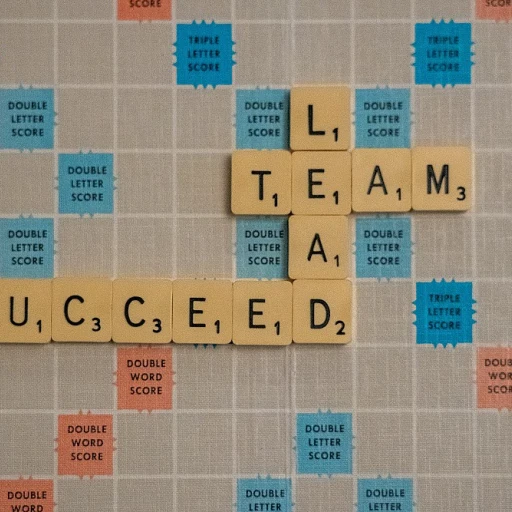
Understanding the role of artificial intelligence in modern interviews
AI’s Growing Influence in the Interview Process
Artificial intelligence is transforming how companies approach the job interview process. Today, AI tools are not just for tech companies—they are becoming essential in human resources across industries. These tools help hiring managers streamline candidate screening, craft better interview questions, and even analyze answers in real time. The goal is to find candidates who not only have the right skills for the role but also fit the company culture and can work well with the team.
AI-driven systems can quickly review resumes, highlight relevant experience, and suggest interview questions tailored to each candidate. This saves time for both the hiring manager and the candidate, making the process more efficient. For example, AI can recommend behavioral interview questions that focus on problem solving, decision making, and soft skills—qualities that are often hard to measure but critical for long term success in any company.
- Personalized interview questions: AI can generate questions based on the specific job description and the candidate’s background.
- Consistent evaluation: Automated tools help ensure every candidate is assessed using the same criteria, reducing bias and improving fairness.
- Data-driven insights: AI can analyze candidate answers to interview questions, helping hiring managers identify top performers more accurately.
As companies seek to fill roles in areas like sales, product development, and UX, AI is helping HR teams identify candidates who can contribute to the company’s long term goals. For those interested in exploring top sales recruiting roles at artificial intelligence companies, understanding how AI shapes the interview process is essential.
While AI offers many benefits, it’s important to remember that technology should support—not replace—human judgment. The best hiring outcomes come from a balanced approach, where AI helps with initial screening and question selection, but the final decision is made by people who understand the company’s unique needs and values.
Key qualities to assess in candidates using AI tools
Identifying Core Competencies for AI-Driven Interviews
When using artificial intelligence in the interview process, it is essential to focus on the key qualities that AI tools can help assess in candidates. The goal is not only to evaluate technical skills but also to understand how a candidate will fit into the company culture and contribute to long-term success. AI can support hiring managers by highlighting patterns in answers and surfacing insights that might be missed in traditional interviews.
- Technical Proficiency: AI tools can analyze how well candidates answer questions related to the job role, such as their experience with relevant software, data analysis, or programming languages. This helps ensure candidates have the foundational skills needed for the work.
- Problem Solving and Decision Making: By reviewing responses to behavioral interview questions, AI can help determine how candidates handle complex situations. For example, asking a candidate to describe a time they solved a challenging problem or made a difficult decision gives insight into their critical thinking abilities.
- Soft Skills and Communication: AI can assess communication style, clarity, and emotional intelligence by analyzing how candidates share their experiences and answer questions. This is crucial for roles that require teamwork and collaboration.
- Adaptability and Learning: In a fast-changing work environment, it is important to know if candidates can adapt. AI can help by evaluating answers to questions about how candidates handle change or learn new skills.
- Cultural Fit and Motivation: AI can identify language and themes in answers that align with company values. Questions about why a candidate wants to join the company or how they see their career developing can reveal long-term potential and alignment with company culture.
Using AI in the interview process allows hiring managers to go beyond surface-level answers and gain a deeper understanding of each candidate. For more on how AI is transforming talent acquisition, you can read about how text-based AI tools are changing the way companies find and assess talent.
While AI can help streamline the interview process and surface valuable insights, it is important to remember that these tools should support, not replace, human judgment. The next step is to craft interview questions that will help both AI and hiring managers assess the qualities that matter most for the role.
Crafting good interview questions to ask a candidate
Building Questions That Reveal Real Skills and Mindsets
When preparing interview questions for AI roles in HR, it’s important to go beyond technical skills. The right questions help hiring managers understand how a candidate will fit into the team, handle challenges, and contribute to the company culture. Well-crafted interview questions also make it easier to compare candidates fairly and consistently during the interview process.- Behavioral interview questions: Ask candidates to describe a time they solved a complex problem or worked with a diverse team. For example, “Can you share a situation where you used data to improve a hiring process?” This type of question will help you assess both problem solving and decision making skills.
- Soft skills and adaptability: AI roles often require collaboration and flexibility. Questions like, “How do you handle feedback when working on a project?” or “Describe a time you had to learn a new technology quickly for your job,” give insight into a candidate’s willingness to learn and work with others.
- Technical and ethical awareness: To ensure candidates understand the impact of AI in HR, ask, “What ethical considerations do you think are important when using AI in the interview process?” This question will help you gauge their understanding of responsible AI use.
- Long-term vision: Questions such as, “Where do you see your career in AI and HR evolving over the next few years?” help you understand if the candidate’s goals align with your company’s direction.
Tips for Effective Question Design
- Keep questions open-ended to encourage detailed answers.
- Mix technical, behavioral, and situational questions to get a full picture of the candidate.
- Use consistent questions for all candidates to ensure fairness in the job interview process.
- Include questions that reflect your company’s values and work environment.
Using AI to analyze candidate responses
How AI Evaluates Candidate Responses
Artificial intelligence is changing the way hiring managers assess answers during the interview process. When candidates respond to interview questions, AI tools can analyze their answers for more than just keywords. These systems look for patterns in language, tone, and even the structure of the response. For example, if a candidate is asked to describe a time they handled a difficult situation at work, AI can help evaluate not only what they did, but how clearly and confidently they communicate their experience.Key Metrics AI Considers
- Communication skills: AI can assess how well candidates articulate their thoughts and whether their answers are concise and relevant to the question.
- Problem solving: When candidates share examples of how they handled challenges, AI tools can identify decision making patterns and the steps taken to resolve issues.
- Soft skills: AI can pick up on cues about teamwork, adaptability, and emotional intelligence by analyzing the language used in behavioral interview answers.
- Company culture fit: By comparing candidate responses to company values, AI can help determine if someone is likely to thrive in the long term.
Benefits and Limitations
AI can process large volumes of candidate answers quickly, helping hiring managers focus on the most promising applicants. For example, AI can flag responses that match the company’s desired skills or highlight candidates who describe their career growth in ways that align with the job requirements. However, it is important to remember that AI should not be the only decision maker. Human judgment is still needed to interpret context, understand nuances, and ensure fairness throughout the interview process.Best Practices for Using AI in Interviews
- Use AI to screen for consistent, relevant answers to interview questions, but always review flagged responses yourself.
- Combine AI insights with your own observations about how candidates handle questions, especially those about teamwork or problem solving.
- Ensure the AI system is regularly updated to avoid bias and reflect the company’s evolving needs.
Balancing AI recommendations with human judgment
Finding the Right Balance Between AI Insights and Human Expertise
AI-powered tools can quickly analyze candidate answers and highlight patterns that might be missed in a traditional job interview. However, relying solely on AI recommendations during the interview process can lead to missed opportunities or even bias. The hiring manager’s experience and intuition remain essential, especially when evaluating soft skills, company culture fit, and long term potential.- Context matters: AI can flag certain responses, but only a human can interpret if a candidate’s answer truly fits the company’s needs or the specific role.
- Behavioral interview questions: While AI can score answers to questions like “Describe a time you handled a difficult team situation,” it’s up to the interviewer to probe deeper and understand the story behind the answer.
- Decision making: AI can help shortlist candidates, but final decisions should consider both data and human judgment. For example, a candidate’s unique career journey or problem solving approach might not be fully captured by algorithms.
- Company culture: Questions interviewers ask about values or teamwork may generate answers that AI can categorize, but only people can sense if the candidate will thrive in the team environment.
Practical Tips for Integrating AI and Human Judgment
- Use AI to help structure the interview process and identify strong candidates, but always review AI findings with a critical eye.
- Share AI-generated insights with the interview panel, then discuss as a team to ensure diverse perspectives are considered.
- Ask follow-up questions based on AI analysis, but allow space for candidates to share their stories in their own words.
- Document how AI recommendations influenced your hiring decisions, ensuring transparency and fairness for all candidates.
Ethical considerations when using AI in interviews
Ensuring Fairness and Transparency in AI-Driven Interviews
When integrating artificial intelligence into the interview process, ethical considerations must be at the forefront. AI can help hiring managers sift through large pools of candidates and analyze answers efficiently, but it also introduces new challenges around fairness, bias, and transparency. Here are some key points to keep in mind:
- Bias Mitigation: AI systems are only as unbiased as the data and algorithms behind them. If historical data reflects biased hiring practices, the AI may unintentionally perpetuate those patterns. Regular audits and updates to the AI's training data are essential to ensure that all candidates, regardless of background, have an equal opportunity to showcase their skills and answer questions fairly.
- Transparency with Candidates: Candidates should be informed when AI is being used in the job interview process. Clearly communicate how their answers will be evaluated and what role AI plays in decision making. This transparency builds trust and helps candidates feel more comfortable sharing their experiences, such as how they handle questions about teamwork or describe a time they solved a problem.
- Data Privacy: Protecting candidate data is a legal and ethical obligation. Ensure that any information collected during interviews, including responses to behavioral interview questions, is stored securely and only used for its intended purpose. Candidates should know how long their data will be retained and who will have access to it.
- Human Oversight: While AI can help identify top candidates and analyze soft skills, it should not be the sole decision maker. Human judgment remains critical, especially when evaluating nuanced qualities like cultural fit or long term potential within the company. The hiring manager should always review AI recommendations and consider the broader context of each candidate's career journey.
- Continuous Improvement: Regularly review the effectiveness of AI-driven interview questions and the overall interview process. Solicit feedback from candidates and hiring teams to identify areas for improvement, ensuring that the questions help uncover the best talent for each role.
By addressing these ethical considerations, companies can leverage AI to enhance their interview process while maintaining fairness, protecting candidate rights, and supporting a positive company culture. This approach will help organizations build diverse, high-performing teams and foster trust throughout the hiring journey.












